The Vulnerable Scientist
Only scientists who are honest and authentic or are working towards it will be on this podcast.Professor Brene Brown's research shows that vulnerability fosters good emotional and mental health. It is a sign of courage. We become more resilient and brave when we embrace who we truly are and what we are feeling. The Vulnerable Scientist Podcast is a space for scientists to tell their honest and authentic stories. I am your host Sarah Nyakeri who happens to be a scientist, Informal science communicator and I help scientists create personal websites. If you want to support this show, go to www.patreon.com/thevulnerablescientist.com You can also follow this podcast on all social media platforms @TVScientistPodTheVulnerableScientist.com See acast.com/privacy for privacy and opt-out information.
Episodes
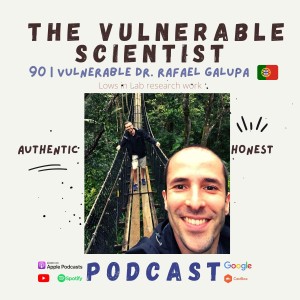
Monday Apr 11, 2022
Monday Apr 11, 2022
Dr Rafael Galupa is today's guest for The Vulnerable Scientist Podcast. He is a Postdoctoral Researcher at EMBL where he engineers DNA to understand life. In this episode, Rafael talks about the lows he experienced during his lab research days and how he dealt with it.The Vulnerable Scientist is a Kenyan-based podcast that focuses on scientists' stories about their daily lives, work, and how they got to where they are. I am your host Sarah Nyakeri, a scientist, informal science communicator and a hiker. I am a multidisciplinary individual that does digital marketing and website design during my free time.The main questions asked that scientists are expected to answer vulnerable are: How are you, Introduce yourself, how did you become a scientist, What are the highs and lows you have experienced in your science career, tell the listeners about your hobbies, what question would you like to answer that has not been asked and how do you feel after having this conversation.Why did I start this podcast? You might ask. When doing my MSc project, my experiments started to fail at a certain period and it was very frustrating. I thought, If I finally get a new vaccine target for CBPP in cows, it would be all smiles but no one will ever know what I went through. I also wondered how many scientists were going through the same rough patch but did not openly talk about it?One day when I had just had a rough day, I talked into a mic about my day and I felt better. That was the first episode. At first, I thought it would just be journalling but after some fellow scientists heard it, they wanted to be Vulnerable too. Since then I have brought scientists from different fields to tell their stories of the highs and lows they have experienced with honesty and authenticity being the lead of our informal and long conversations.I enjoy asking questions since I am a naturally curious person. Feedback from the audience, including scientists and non-scientists, is the main motivation I message scientists or accept their request to be on the podcast, schedule an interview, edit audio, design the artwork, post it, and share it on social media platforms. It is a full-time job that requires me to spend from my pocket with no monetary returns, but I enjoy it.If you want to be Vulnerable on the show, send me an audio message either on speak pipe (https://www.speakpipe.com/VulnerableScientistVoicemail ) or anchor (https://anchor.fm/thevulnerablescientist/message).Feel free to reach out too if you want to talk about a certain topic in the science career space or anything as a scientist that might have nothing to with science but affects scientists. The podcast is on social media @TVscientistPod and Website; TheVulnerablescientist.com.You can support the show (https://www.patreon.com/thevulnerablescientist) on Patreon or Paypal sarahnyanchera(at)gmail or Mpesa at (254)0718896962 under Sarah Nyakeri. See acast.com/privacy for privacy and opt-out information.
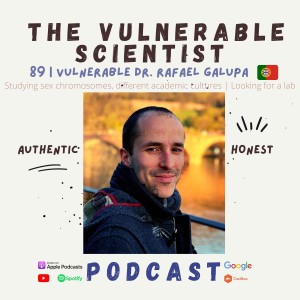
Friday Apr 08, 2022
Friday Apr 08, 2022
Dr Rafael Galupa is today's guest for The Vulnerable Scientist Podcast. He is a Postdoctoral Researcher at EMBL where he engineers DNA to understand life. In this episode, Rafael talks about how looked for a lab to settle for and how different research labs were different in turns of culture. He also talks about studying chromosomes and cancer.The Vulnerable Scientist is a Kenyan-based podcast that focuses on scientists' stories about their daily lives, work, and how they got to where they are. I am your host Sarah Nyakeri, a scientist, informal science communicator and a hiker. I am a multidisciplinary individual that does digital marketing and website design during my free time.The main questions asked that scientists are expected to answer vulnerable are: How are you, Introduce yourself, how did you become a scientist, What are the highs and lows you have experienced in your science career, tell the listeners about your hobbies, what question would you like to answer that has not been asked and how do you feel after having this conversation.Why did I start this podcast? You might ask. When doing my MSc project, my experiments started to fail at a certain period and it was very frustrating. I thought, If I finally get a new vaccine target for CBPP in cows, it would be all smiles but no one will ever know what I went through. I also wondered how many scientists were going through the same rough patch but did not openly talk about it?One day when I had just had a rough day, I talked into a mic about my day and I felt better. That was the first episode. At first, I thought it would just be journalling but after some fellow scientists heard it, they wanted to be Vulnerable too. Since then I have brought scientists from different fields to tell their stories of the highs and lows they have experienced with honesty and authenticity being the lead of our informal and long conversations.I enjoy asking questions since I am a naturally curious person. Feedback from the audience, including scientists and non-scientists, is the main motivation I message scientists or accept their request to be on the podcast, schedule an interview, edit audio, design the artwork, post it, and share it on social media platforms. It is a full-time job that requires me to spend from my pocket with no monetary returns, but I enjoy it.If you want to be Vulnerable on the show, send me an audio message either on speak pipe (https://www.speakpipe.com/VulnerableScientistVoicemail ) or anchor (https://anchor.fm/thevulnerablescientist/message).Feel free to reach out too if you want to talk about a certain topic in the science career space or anything as a scientist that might have nothing to with science but affects scientists. The podcast is on social media @TVscientistPod and Website; TheVulnerablescientist.com.You can support the show (https://www.patreon.com/thevulnerablescientist) on Patreon or Paypal sarahnyanchera(at)gmail or Mpesa at (254)0718896962 under Sarah Nyakeri. See acast.com/privacy for privacy and opt-out information.
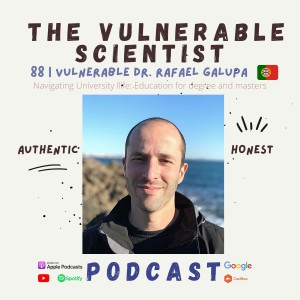
Thursday Apr 07, 2022
Thursday Apr 07, 2022
Dr Rafael Galupa is today's guest for The Vulnerable Scientist Podcast. He is a Postdoctoral Researcher at EMBL where he engineers DNA to understand life. In this episode, Rafael talks about his experience at the University in Europe including in his home country, Portugal.The Vulnerable Scientist is a Kenyan-based podcast that focuses on scientists' stories about their daily lives, work, and how they got to where they are. I am your host Sarah Nyakeri, a scientist, informal science communicator and a hiker. I am a multidisciplinary individual that does digital marketing and website design during my free time.The main questions asked that scientists are expected to answer vulnerable are: How are you, Introduce yourself, how did you become a scientist, What are the highs and lows you have experienced in your science career, tell the listeners about your hobbies, what question would you like to answer that has not been asked and how do you feel after having this conversation.Why did I start this podcast? You might ask. When doing my MSc project, my experiments started to fail at a certain period and it was very frustrating. I thought, If I finally get a new vaccine target for CBPP in cows, it would be all smiles but no one will ever know what I went through. I also wondered how many scientists were going through the same rough patch but did not openly talk about it?One day when I had just had a rough day, I talked into a mic about my day and I felt better. That was the first episode. At first, I thought it would just be journalling but after some fellow scientists heard it, they wanted to be Vulnerable too. Since then I have brought scientists from different fields to tell their stories of the highs and lows they have experienced with honesty and authenticity being the lead of our informal and long conversations.I enjoy asking questions since I am a naturally curious person. Feedback from the audience, including scientists and non-scientists, is the main motivation I message scientists or accept their request to be on the podcast, schedule an interview, edit audio, design the artwork, post it, and share it on social media platforms. It is a full-time job that requires me to spend from my pocket with no monetary returns, but I enjoy it.If you want to be Vulnerable on the show, send me an audio message either on speak pipe (https://www.speakpipe.com/VulnerableScientistVoicemail ) or anchor (https://anchor.fm/thevulnerablescientist/message).Feel free to reach out too if you want to talk about a certain topic in the science career space or anything as a scientist that might have nothing to with science but affects scientists. The podcast is on social media @TVscientistPod and Website; TheVulnerablescientist.com.You can support the show (https://www.patreon.com/thevulnerablescientist) on Patreon or Paypal sarahnyanchera(at)gmail or Mpesa at (254)0718896962 under Sarah Nyakeri. See acast.com/privacy for privacy and opt-out information.
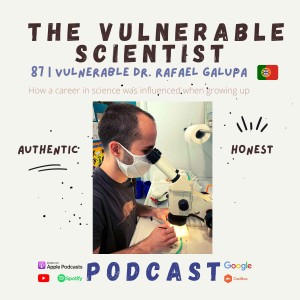
Wednesday Apr 06, 2022
Wednesday Apr 06, 2022
Dr Rafael Galupa is today's guest for The Vulnerable Scientist Podcast. He is a Postdoctoral Researcher at EMBL where he engineers DNA to understand lifeIn this episode, Rafael talks about how a career in science was influenced when growing up. He loved nature and knew that he wanted to be a scientist at a young age due to how he was exposed earlier on.The Vulnerable Scientist is a Kenyan-based podcast that focuses on scientists' stories about their daily lives, work, and how they got to where they are. I am your host Sarah Nyakeri, a scientist, informal science communicator and a hiker. I am a multidisciplinary individual that does digital marketing and website design during my free time.The main questions asked that scientists are expected to answer vulnerable are: How are you, Introduce yourself, how did you become a scientist, What are the highs and lows you have experienced in your science career, tell the listeners about your hobbies, what question would you like to answer that has not been asked and how do you feel after having this conversation.Why did I start this podcast? You might ask. When doing my MSc project, my experiments started to fail at a certain period and it was very frustrating. I thought, If I finally get a new vaccine target for CBPP in cows, it would be all smiles but no one will ever know what I went through. I also wondered how many scientists were going through the same rough patch but did not openly talk about it?One day when I had just had a rough day, I talked into a mic about my day and I felt better. That was the first episode. At first, I thought it would just be journalling but after some fellow scientists heard it, they wanted to be Vulnerable too. Since then I have brought scientists from different fields to tell their stories of the highs and lows they have experienced with honesty and authenticity being the lead of our informal and long conversations.I enjoy asking questions since I am a naturally curious person. Feedback from the audience, including scientists and non-scientists, is the main motivation I message scientists or accept their request to be on the podcast, schedule an interview, edit audio, design the artwork, post it, and share it on social media platforms. It is a full-time job that requires me to spend from my pocket with no monetary returns, but I enjoy it.If you want to be Vulnerable on the show, send me an audio message either on speak pipe (https://www.speakpipe.com/VulnerableScientistVoicemail ) or anchor (https://anchor.fm/thevulnerablescientist/message).Feel free to reach out too if you want to talk about a certain topic in the science career space or anything as a scientist that might have nothing to with science but affects scientists. The podcast is on social media @TVscientistPod and Website; TheVulnerablescientist.com.You can support the show (https://www.patreon.com/thevulnerablescientist) on Patreon or Paypal sarahnyanchera(at)gmail or Mpesa at (254)0718896962 under Sarah Nyakeri. See acast.com/privacy for privacy and opt-out information.
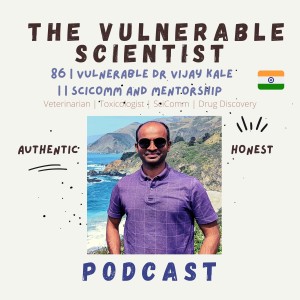
Tuesday Apr 05, 2022
Tuesday Apr 05, 2022
Dr Vijay Kale has more than 12 years of industrial experience as a Project Toxicologist and Study Director in drug safety evaluation, particularly nonclinical Dtoxicology studies of small molecules and biopharmaceuticals including immuno-oncotherapeutics. He has directed Central Clinical Pathology laboratory, a prime resource for Nonclinical toxicology and pharmacology studies for seven new chemical entities and numerous Clinical Studies (Phase 1 & BA/BE studies). He has also worked closely with various players in Drug Discovery and Drug Development such as Chemistry, DMPK, Cell and Molecular Biology, in vitro assay teams, Biotechnology, Clinical Research, Statistics, QAU, and Sponsors. In this episode, He talks about the highs and lows he has experienced throughout his journey in his science career. The Vulnerable Scientist is a Kenyan-based podcast that focuses on scientists' stories about their daily lives, work, and how they got to where they are. I am your host Sarah Nyakeri, a scientist, informal science communicator and a hiker. I am a multidisciplinary individual that does digital marketing and website design during my free time.The main questions asked that scientists are expected to answer vulnerable are: How are you, Introduce yourself, how did you become a scientist, What are the highs and lows you have experienced in your science career, tell the listeners about your hobbies, what question would you like to answer that has not been asked and how do you feel after having this conversation.Why did I start this podcast? You might ask. When doing my MSc project, my experiments started to fail at a certain period and it was very frustrating. I thought, If I finally get a new vaccine target for CBPP in cows, it would be all smiles but no one will ever know what I went through. I also wondered how many scientists were going through the same rough patch but did not openly talk about it?I enjoy asking questions since I am a naturally curious person. Feedback from the audience, including scientists and non-scientists, is the main motivation I message scientists or accept their request to be on the podcast, schedule an interview, edit audio, design the artwork, post it, and share it on social media platforms. It is a full-time job that requires me to spend from my pocket with no monetary returns, but I enjoy it.If you want to be Vulnerable on the show, send me an audio message either on speak pipe (https://www.speakpipe.com/VulnerableScientistVoicemail ) or anchor (https://anchor.fm/thevulnerablescientist/message). Feel free to reach out too if you want to talk about a certain topic in the science career space or anything as a scientist that might have nothing to with science but affects scientists. The podcast is on social media @TVscientistPod and Website; TheVulnerablescientist.com. You can support the show (https://www.patreon.com/thevulnerablescientist) on Patreon or Paypal sarahnyanchera(at)gmail or Mpesa at (254)0718896962 under Sarah Nyakeri. See acast.com/privacy for privacy and opt-out information.
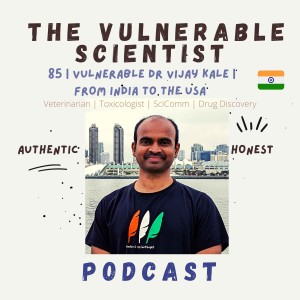
Monday Apr 04, 2022
Monday Apr 04, 2022
Dr Vijay Kale has more than 12 years of industrial experience as a Project Toxicologist and Study Director in drug safety evaluation, particularly nonclinical Dtoxicology studies of small molecules and biopharmaceuticals including immuno-oncotherapeutics. He has directed Central Clinical Pathology laboratory, a prime resource for Nonclinical toxicology and pharmacology studies for seven new chemical entities and numerous Clinical Studies (Phase 1 & BA/BE studies). He has also worked closely with various players in Drug Discovery and Drug Development such as Chemistry, DMPK, Cell and Molecular Biology, in vitro assay teams, Biotechnology, Clinical Research, Statistics, QAU, and Sponsors. In this episode, He talks about the highs and lows he has experienced throughout his journey in his science career. The Vulnerable Scientist is a Kenyan-based podcast that focuses on scientists' stories about their daily lives, work, and how they got to where they are. I am your host Sarah Nyakeri, a scientist, informal science communicator and a hiker. I am a multidisciplinary individual that does digital marketing and website design during my free time.The main questions asked that scientists are expected to answer vulnerable are: How are you, Introduce yourself, how did you become a scientist, What are the highs and lows you have experienced in your science career, tell the listeners about your hobbies, what question would you like to answer that has not been asked and how do you feel after having this conversation.Why did I start this podcast? You might ask. When doing my MSc project, my experiments started to fail at a certain period and it was very frustrating. I thought, If I finally get a new vaccine target for CBPP in cows, it would be all smiles but no one will ever know what I went through. I also wondered how many scientists were going through the same rough patch but did not openly talk about it?I enjoy asking questions since I am a naturally curious person. Feedback from the audience, including scientists and non-scientists, is the main motivation I message scientists or accept their request to be on the podcast, schedule an interview, edit audio, design the artwork, post it, and share it on social media platforms. It is a full-time job that requires me to spend from my pocket with no monetary returns, but I enjoy it.If you want to be Vulnerable on the show, send me an audio message either on speak pipe (https://www.speakpipe.com/VulnerableScientistVoicemail ) or anchor (https://anchor.fm/thevulnerablescientist/message). Feel free to reach out too if you want to talk about a certain topic in the science career space or anything as a scientist that might have nothing to with science but affects scientists. The podcast is on social media @TVscientistPod and Website; TheVulnerablescientist.com. You can support the show (https://www.patreon.com/thevulnerablescientist) on Patreon or Paypal sarahnyanchera(at)gmail or Mpesa at (254)0718896962 under Sarah Nyakeri. See acast.com/privacy for privacy and opt-out information.
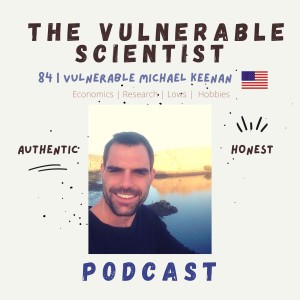
Friday Apr 01, 2022
Friday Apr 01, 2022
Michael Keenan is PhD Candidate at Wageningen University and Research. His dissertation focuses on understanding how risk and market access affect smallholder farmers’ marketing and investment decisions, agricultural households’ livelihoods, and internal conflict within agricultural-based economies. His research combines behavioural, theoretical, and empirical analysis at the intra-household level, household-level, and macroeconomic level to understand these relationships. He is passionate about applying quantitative methods and big data to a range of economic development issues. His research is now expanding into understanding gender gaps in smallholder agriculture, urban migration patterns in Sub-Saharan Africa, and the effects of digital innovations on rural areas' food systems. He has been based in Nairobi, Kenya for the past three years and has experience conducting research in Ethiopia, Kenya, Rwanda, Uganda, and Tanzania. I enjoy travelling, reading, and spending time with friends and family.In this episode, He talks about highs and hobbiesThe Vulnerable Scientist is a Kenyan-based podcast that focuses on scientists' stories about their daily lives, work, and how they got to where they are. I am your host Sarah Nyakeri, a scientist, informal science communicator and a hiker. I am a multidisciplinary individual that does digital marketing and website design during my free time.The main questions asked that scientists are expected to answer vulnerable are: How are you, Introduce yourself, how did you become a scientist, What are the highs and lows you have experienced in your science career, tell the listeners about your hobbies, what question would you like to answer that has not been asked and how do you feel after having this conversation.Why did I start this podcast? You might ask. When doing my MSc project, my experiments started to fail at a certain period and it was very frustrating. I thought, If I finally get a new vaccine target for CBPP in cows, it would be all smiles but no one will ever know what I went through. I also wondered how many scientists were going through the same rough patch but did not openly talk about it?I enjoy asking questions since I am a naturally curious person. Feedback from the audience, including scientists and non-scientists, is the main motivation I message scientists or accept their request to be on the podcast, schedule an interview, edit audio, design the artwork, post it, and share it on social media platforms. It is a full-time job that requires me to spend from my pocket with no monetary returns, but I enjoy it.If you want to be Vulnerable on the show, send me an audio message either on speak pipe (https://www.speakpipe.com/VulnerableScientistVoicemail ) or anchor (https://anchor.fm/thevulnerablescientist/message). Feel free to reach out too if you want to talk about a certain topic in the science career space or anything as a scientist that might have nothing to with science but affects scientists. The podcast is on social media @TVscientistPod and Website; TheVulnerablescientist.com. You can support the show (https://www.patreon.com/thevulnerablescientist) on Patreon or Paypal sarahnyanchera(at)gmail or Mpesa at (254)0718896962 under Sarah Nyakeri. See acast.com/privacy for privacy and opt-out information.
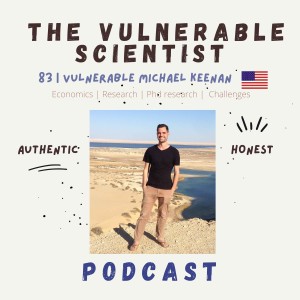
Thursday Mar 31, 2022
Thursday Mar 31, 2022
Michael KeenanMichael Keenan is PhD Candidate at Wageningen University and Research. His dissertation focuses on understanding how risk and market access affect smallholder farmers’ marketing and investment decisions, agricultural households’ livelihoods, and internal conflict within agricultural-based economies. His research combines behavioural, theoretical, and empirical analysis at the intra-household level, household-level, and macroeconomic level to understand these relationships. He is passionate about applying quantitative methods and big data to a range of economic development issues. His research is now expanding into understanding gender gaps in smallholder agriculture, urban migration patterns in Sub-Saharan Africa, and the effects of digital innovations on rural areas' food systems. He has been based in Nairobi, Kenya for the past three years and has experience conducting research in Ethiopia, Kenya, Rwanda, Uganda, and Tanzania. He enjoys travelling, reading, and spending time with friends and family.In this episode, He talks about his research and the Lows of his career.The Vulnerable Scientist is a Kenyan-based podcast that focuses on scientists' stories about their daily lives, work, and how they got to where they are. I am your host Sarah Nyakeri, a scientist, informal science communicator and a hiker. I am a multidisciplinary individual that does digital marketing and website design during my free time.The main questions asked that scientists are expected to answer vulnerable are: How are you, Introduce yourself, how did you become a scientist, What are the highs and lows you have experienced in your science career, tell the listeners about your hobbies, what question would you like to answer that has not been asked and how do you feel after having this conversation.Why did I start this podcast? You might ask. When doing my MSc project, my experiments started to fail at a certain period and it was very frustrating. I thought, If I finally get a new vaccine target for CBPP in cows, it would be all smiles but no one will ever know what I went through. I also wondered how many scientists were going through the same rough patch but did not openly talk about it?I enjoy asking questions since I am a naturally curious person. Feedback from the audience, including scientists and non-scientists, is the main motivation I message scientists or accept their request to be on the podcast, schedule an interview, edit audio, design the artwork, post it, and share it on social media platforms. It is a full-time job that requires me to spend from my pocket with no monetary returns, but I enjoy it.If you want to be Vulnerable on the show, send me an audio message either on speak pipe (https://www.speakpipe.com/VulnerableScientistVoicemail ) or anchor (https://anchor.fm/thevulnerablescientist/message). Feel free to reach out too if you want to talk about a certain topic in the science career space or anything as a scientist that might have nothing to with science but affects scientists. The podcast is on social media @TVscientistPod and Website; TheVulnerablescientist.com. You can support the show (https://www.patreon.com/thevulnerablescientist) on Patreon or Paypal sarahnyanchera(at)gmail or Mpesa at (254)0718896962 under Sarah Nyakeri. See acast.com/privacy for privacy and opt-out information.
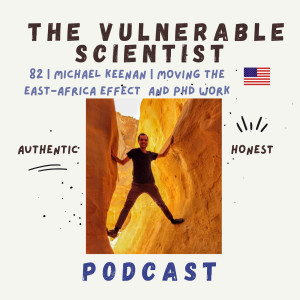
Wednesday Mar 30, 2022
Wednesday Mar 30, 2022
Michael Keenan is PhD Candidate at Wageningen University and Research. His dissertation focuses on understanding how risk and market access affect smallholder farmers’ marketing and investment decisions, agricultural households’ livelihoods, and internal conflict within agricultural-based economies. To understand these relationships, His research combines behavioral, theoretical, and empirical analysis at the intra-household level, household-level, and mesoeconomic level. He is passionate about applying quantitative methods and big data to a range of economic development issues. His research is now expanding into understanding gender gaps in smallholder agriculture, urban migration patterns in Sub-Saharan Africa, and the effects of digital innovations on rural areas' food systems. He has been based in Nairobi, Kenya for the past three years and has experience conducting research in Ethiopia, Kenya, Rwanda, Uganda, and Tanzania. I enjoy travelling, reading, and spending time with friends and family.In this episode, He talks about pursuing a career in East Africa and his PhD WorkThe Vulnerable Scientist is a Kenyan-based podcast that focuses on scientists' stories about their daily lives, work, and how they got to where they are. I am your host Sarah Nyakeri, a scientist, informal science communicator and a hiker. I am a multidisciplinary individual that does digital marketing and website design during my free time.The main questions asked that scientists are expected to answer vulnerable are: How are you, Introduce yourself, how did you become a scientist, What are the highs and lows you have experienced in your science career, tell the listeners about your hobbies, what question would you like to answer that has not been asked and how do you feel after having this conversation.Why did I start this podcast? You might ask. When doing my MSc project, my experiments started to fail at a certain period and it was very frustrating. I thought, If I finally get a new vaccine target for CBPP in cows, it would be all smiles but no one will ever know what I went through. I also wondered how many scientists were going through the same rough patch but did not openly talk about it?I enjoy asking questions since I am a naturally curious person. Feedback from the audience, including scientists and non-scientists, is the main motivation I message scientists or accept their request to be on the podcast, schedule an interview, edit audio, design the artwork, post it, and share it on social media platforms. It is a full-time job that requires me to spend from my pocket with no monetary returns, but I enjoy it.If you want to be Vulnerable on the show, send me an audio message either on speak pipe (https://www.speakpipe.com/VulnerableScientistVoicemail ) or anchor (https://anchor.fm/thevulnerablescientist/message). Feel free to reach out too if you want to talk about a certain topic in the science career space or anything as a scientist that might have nothing to with science but affects scientists. The podcast is on social media @TVscientistPod and Website; TheVulnerablescientist.com. You can support the show (https://www.patreon.com/thevulnerablescientist) on Patreon or Paypal sarahnyanchera(at)gmail or Mpesa at (254)0718896962 under Sarah Nyakeri. See acast.com/privacy for privacy and opt-out information.
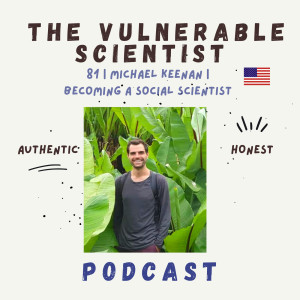
Tuesday Mar 29, 2022
Tuesday Mar 29, 2022
Michael Keenan is PhD Candidate at Wageningen University and Research. His dissertation focuses on understanding how risk and market access affect smallholder farmers’ marketing and investment decisions, agricultural households’ livelihoods, and internal conflict within agricultural-based economies. His research combines behavioural, theoretical, and empirical analysis at the intra-household, household, and macroeconomic levels to understand these relationships. He has been based in Nairobi, Kenya for the past three years and has experience conducting research in Ethiopia, Kenya, Rwanda, Uganda, and Tanzania. I enjoy travelling, reading, and spending time with friends and family.In this episode, He talks about his journey moving from the United States to Europe to pursue post-graduate education.The Vulnerable Scientist is a Kenyan-based podcast that focuses on scientists' stories about their daily lives, work, and how they got to where they are. I am your host Sarah Nyakeri, a scientist, informal science communicator and a hiker. I am a multidisciplinary individual that does digital marketing and website design during my free time.The main questions asked that scientists are expected to answer vulnerable are: How are you, Introduce yourself, how did you become a scientist, What are the highs and lows you have experienced in your science career, tell the listeners about your hobbies, what question would you like to answer that has not been asked and how do you feel after having this conversation.Why did I start this podcast? You might ask. When doing my MSc project, my experiments started to fail at a certain period and it was very frustrating. I thought, If I finally get a new vaccine target for CBPP in cows, it would be all smiles but no one will ever know what I went through. I also wondered how many scientists were going through the same rough patch but did not openly talk about it?One day when I had just had a rough day, I talked into a mic about my day and I felt better. That was the first episode. At first, I thought it would just be journalling but after some fellow scientists heard it, they wanted to be Vulnerable too. Since then I have brought scientists from different fields to tell their stories of the highs and lows they have experienced with honesty and authenticity being the lead of our informal and long conversations.I enjoy asking questions since I am a naturally curious person. Feedback from the audience, including scientists and non-scientists, is the main motivation I message scientists or accept their request to be on the podcast, schedule an interview, edit audio, design the artwork, post it, and share it on social media platforms. It is a full-time job that requires me to spend from my pocket with no monetary returns, but I enjoy it.If you want to be Vulnerable on the show, send me an audio message either on speak pipe (https://www.speakpipe.com/VulnerableScientistVoicemail ) or anchor (https://anchor.fm/thevulnerablescientist/message). Feel free to reach out too if you want to talk about a certain topic in the science career space or anything as a scientist that might have nothing to with science but affects scientists. The podcast is on social media @TVscientistPod and Website; TheVulnerablescientist.com. You can support the show (https://www.patreon.com/thevulnerablescientist) on Patreon or Paypal sarahnyanchera(at)gmail or Mpesa at (254)0718896962 under Sarah Nyakeri. See acast.com/privacy for privacy and opt-out information.
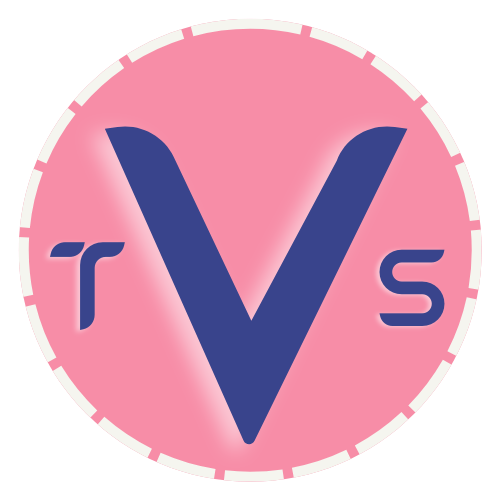
About
Only scientists who are honest and authentic or are working towards it will be on this podcast.
Professor Brene Brown’s research shows that vulnerability fosters good emotional and mental health. It is a sign of courage. We become more resilient and brave when we embrace who we truly are and what we are feeling. The Vulnerable Scientist Podcast is a space for scientists to tell their honest and authentic stories.
I am your host Sarah Nyakeri who happens to be a scientist, and Informal science communicator and I help scientists create personal websites.
If you want to support this show, go to www.patreon.com/thevulnerablescientist.com You can also follow this podcast on all social media platforms @TVScientistPod
